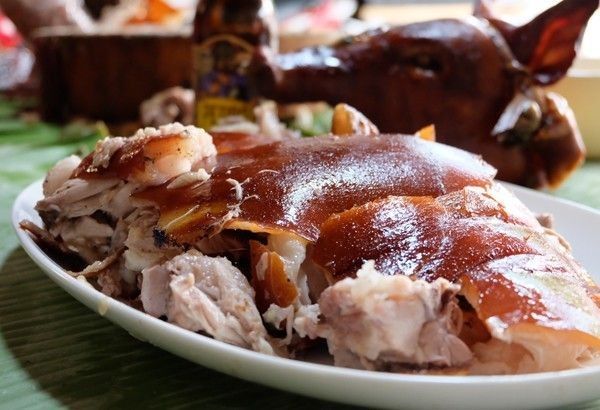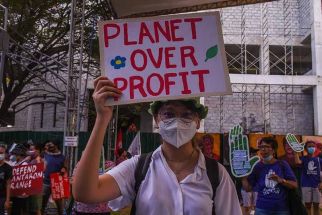No ham, no lechon for Christmas?

Another politically charged food crisis is looming this holiday season. There will likely be little or no ham or lechon for Christmas. Or because the price will be prohibitive for the fiesta-loving ordinary Pinoy, only Jose Mari Chan will remind us of past Christmas cheers.
Blame the resurgence of the African Swine Fever (ASF) epidemic that is causing piggery owners to sell their pigs in panic before they will be required to cull them. Recent data from the Bureau of Animal Industry (BAI) as reported by The STAR last week shows that ASF has spread to 32 provinces, up from 22 reported on Aug. 8.
There are 458 barangays affected nationwide by the ASF, nearly doubling the previous count of 251.
Professor Ramon Clarete, a professor at the UP School of Economics who is tracking agriculture, wrote in a BusinessWorld column that “the outbreak of ASF in Batangas province is the start of the second wave of the dreaded pig disease. The first was in 2019, and that dethroned Bulacan as the largest supplier of pork to the National Capital Region. That initially affected Luzon, but in the next two years, the whole country had its share of ASF. Batangas survived partly because a greater part of its industry was commercial, and biosecurity measures relatively protected from ASF.
“In this wave, ground zero is the province of Batangas, the largest supplier of pork to the NCR. Because of its port in Batangas City, the province is also an entry point of the pigs from Visayas and Mindanao into the NCR. As of this writing, I picked up from among the text messages I received on the topic, that 70 percent of the provincial pig industry has been killed by the virus or culled to arrest the spread of the disease.”
A former DA Undersecretary told me that “backyard hog raising is definitely dead. More than 60 percent of our supply comes from the backyard.”
My colleague, Cito Beltran who lives in Lipa and was into hog raising before the last epidemic, estimated that a marketable hog can sell anywhere from P35 to P50 thousand or even more. So, it is big money and big losses specially for the backyard pig raisers. He added that “feed costs have also skyrocketed and too much hassle from LGUs, cops and checkpoints. A good time to be vegetarian.”
What went wrong again? Hasn’t the BAI learned from the last epidemic?
Apparently, BAI is putting its hopes on an effective vaccine. But the World Organization for Animal Health (WOAH) has advised its members that there is as yet no known effective and stable vaccine for the virus, and that an effective surveillance system continues to be the crucial approach to curtail the spread of ASF and eventually to eradicate the virus.
But as Dr. Clarete observed: “The current surveillance system for the ASF virus in the Philippines is ineffective as evidenced by the fact that everyone was surprised about the outbreak in Batangas. About a month ago, the producers in the province appeared optimistic about the industry.
They said investments for repopulating the pig population after the 2019 ASF outbreak started to pick up. They even organized a regional livestock congress for Region 4A in San Jose, the largest pig producing municipality of the province.”
BAI surveillance reports aside, you have to take note when as Dr. Clarete puts it, producers in a major pig producing province like Batangas start texting stakeholders that a major sell off of pigs in the province was underway due to ASF. A friend just messaged me, a member of my Viber Group said that his acquaintance with 2,000 hogs had half of his stock killed and orders for the rest have dried up.
Now, most commercial farms are afraid to repopulate for fear of being wiped out again by ASF. We will see higher prices by Christmas. We will resort again to importation.
What should have been done?
My ex-usec friend said that “the protocol established during former secretary Dar’s time is not being properly imposed now. No follow up of better testing procedure. Test kit should be available at check points and not hauling pigs to BAI for proper testing. Mobile diagnostic test vans should have been deployed. Now, the only option is to ban transport of hogs from infested areas (i.e., Batangas). And to think that Lipa City is the site of a DA facility for hog protection right now!”
He added: “No one among DA senior officials are acknowledged/respected agricultural scientist nor top-notch economist or analyst. How can one give proper direction when one is unfamiliar with the history, basic facts and data on agriculture, supply and demand situation, global agricultural trade, climate change challenges and neighboring countries with successful agriculture had done or are doing. Decisions will be gut-feel and anecdotal at best.”
It increasingly looks like agriculture is a weak spot of BBM governance. The new secretary is being swallowed by the existing incompetent bureaucracy. BBM’s political fortunes will depend on how they handle the food situation, from rice to pigs leading to food inflation. So far, the signs are not encouraging.
“ASF will lead to further contraction of the agricultural sector. Livestock and corn industry is around a third of agriculture’s GVA. With lower pork supply and even shortage, it will lead to higher meat prices. The shift to poultry consumption will jack up chicken prices.
“High food inflation will continue throughout this year. If the impact of the epidemic turns out to be more serious, the loss of the once vibrant pig industry will erase about a percentage point growth of the country’s agriculture gross domestic product. It will puncture the government’s fight against food price inflation.”
Boo Chanco’s email address is [email protected]. Follow him on X @boochanco.
- Latest
- Trending



























